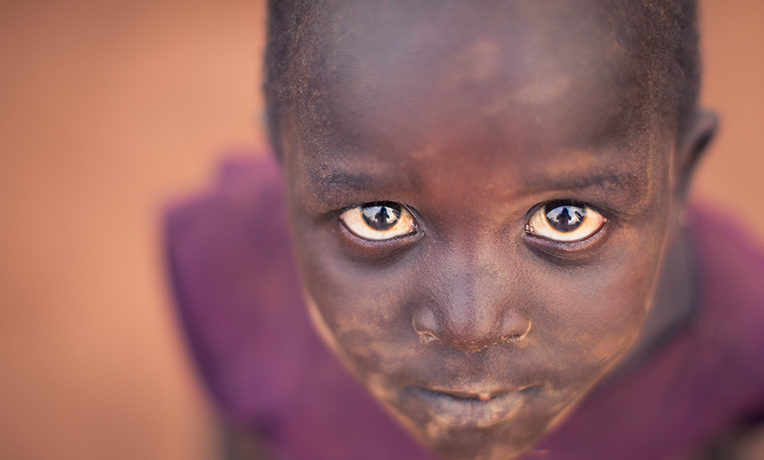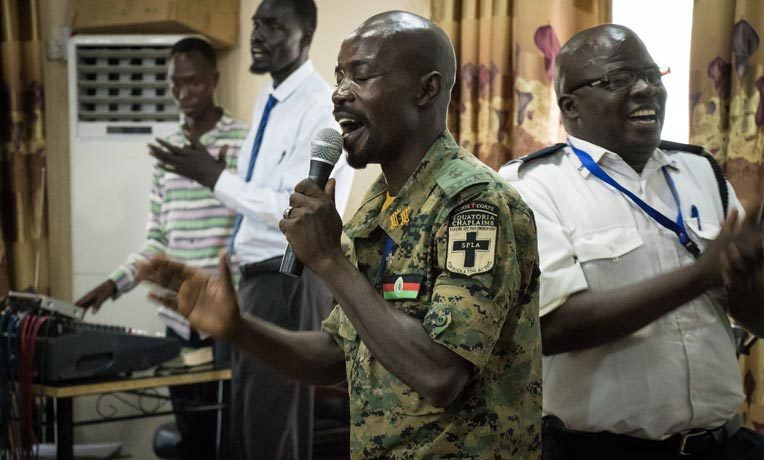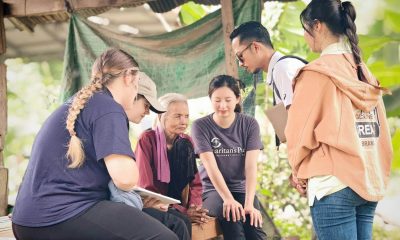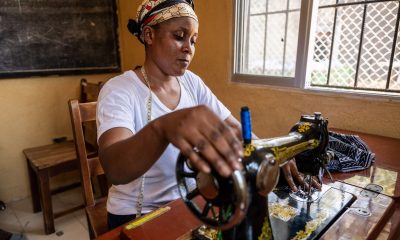We've expanded our work in this troubled nation to help train police chaplains and other government officials in Biblical leadership.
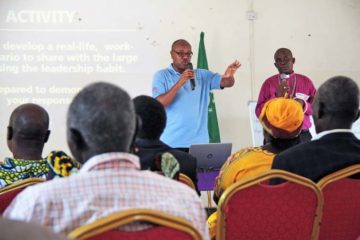
Alex Njukia, ministry program manager, gives instructions for a small group activity during the workshop in Mundri.
For more than 20 years, Samaritan’s Purse has worked to meet the physical needs of people throughout South Sudan while also presenting the hope of the Gospel. As a result of the longstanding relationships we’ve built with national officials, we recently had an opportunity to provide Biblical leadership training to the country’s police chaplains, as well as other government leaders.
Late in 2017, the Reverend General Mabil De Awar Yuot visited the Samaritan’s Purse country office in Juba, South Sudan’s capital. Yuot, head of the South Sudan national police chaplaincy service, wanted our team to train his chaplains.
“The main goal of police chaplaincy, both inside the service and in the communities they serve, is to build peace and maintain law and order,” Yuot said. He went on to quote from Matthew 5:9: “Jesus said, ‘Blessed are the peacemakers, for they shall be called sons of God.’”
Yuot began discussing options with Samaritan’s Purse Country Director Mark Bennett and Ministry Program Manager Alex Njukia about how Samaritan’s Purse could train the police chaplains. A curriculum developed by our international staff in Boone, North Carolina—titled “Leading Using Biblical Principles”—was adapted to fit the needs of South Sudan’s leaders.
Investing in Leaders
“We were excited, humbled and grateful to be asked to teach these leaders of South Sudan about how they can perform their responsibilities in a way that honors God and increases meaningful knowledge and wisdom,” Bennett said. “This is a critical time for us to invest in those in leadership as South Sudan struggles toward sustainable peace.”
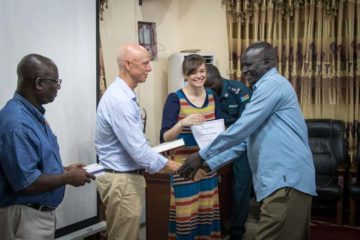
South Sudan Country Director Mark Bennett and Theresa Decker, technical content coordinator, present certificates and study Bibles to participants at the conclusion of the workshop in Juba.
Our three-day training aims to equip leaders with Christ-centered habits and practices. Participants learn it matters to God how they lead. They gain wisdom from the Bible on leading well and discover how to incorporate Biblical principles, such as peacemaking and stewardship, into their responsibilities.
Combining lectures and small group collaboration, the training also takes into account the specific dynamics and history of South Sudan and addresses the substantial challenges of working in areas of longstanding armed conflict.
Our first training was held a few months ago in Aweil State, formerly Northern Bahr el Ghazal. In March 2018, we held trainings in Juba and in Mundri, a city in Amadi State. We had great inroads for partnering with officials in Mundri as Samaritan’s Purse reopened an abandoned hospital in nearby Lui in 1997 that provided health services for more than a decade.
Our team trained more than 100 government leaders in the two most recent sessions. They included officials, police chaplains, and members of the military, wildlife service, and fire brigade.
Several leaders helped open the Juba training on March 5 by offering encouraging remarks and singing songs of worship to God with the participants.
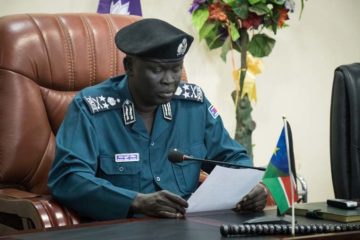
General Majak Akec, inspector general of police for the Republic of South Sudan, officially opened the Biblical leadership workshop for police chaplains and other government leaders in Juba.
“Let us take the Bible instead of the gun,” said the Reverend Moses Telar, director general of the nation’s ministry of religious affairs. “Our country needs to change, even our minds need to change. As chaplains, it is your role. Let us disarm the heart. God is with us.”
General Majak Akec, the inspector general of police in South Sudan, was another honored guest at the opening of the workshop in Juba.
“Combine your duties with the Word of God, and you will do a good thing. I will stand by you,” Akec told participants.
With assistance from Bishop Abraham Nhial in Aweil, other state leaders have shown interest for the workshop in their areas. Additional training is planned in coming months.
Samaritan’s Purse currently operates relief projects from five primary field bases in South Sudan. We are focused on water and sanitation, healthcare, food assistance, nutrition, food security and livelihoods, and continuing partnerships with local churches—all with the goal of sharing the Good News of Jesus Christ.
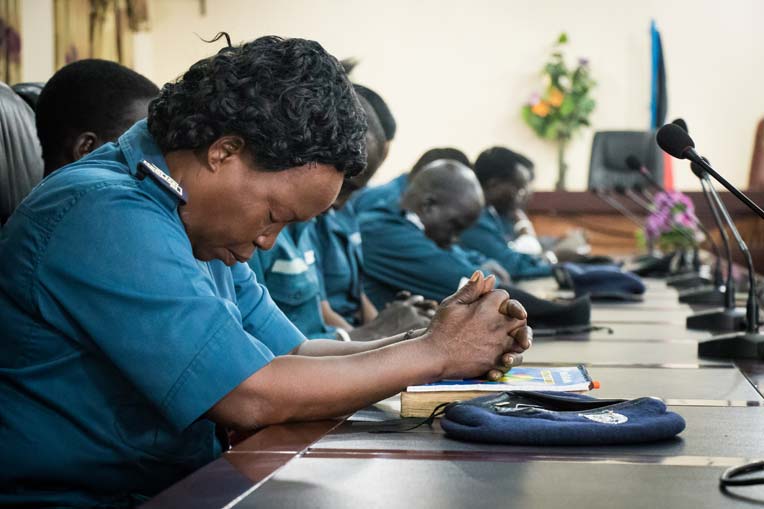
A Republic of South Sudan police officer prays before the Biblical leadership workshop begins in Juba.
